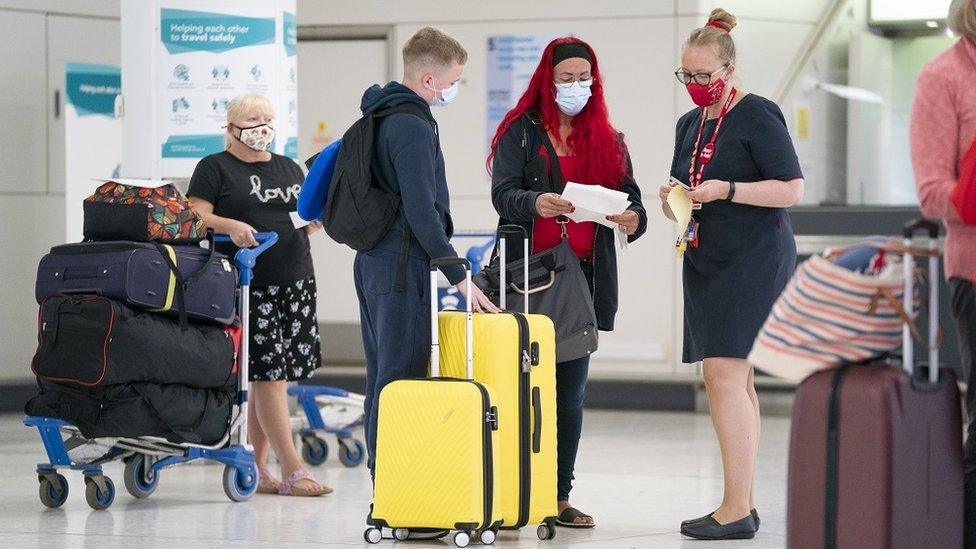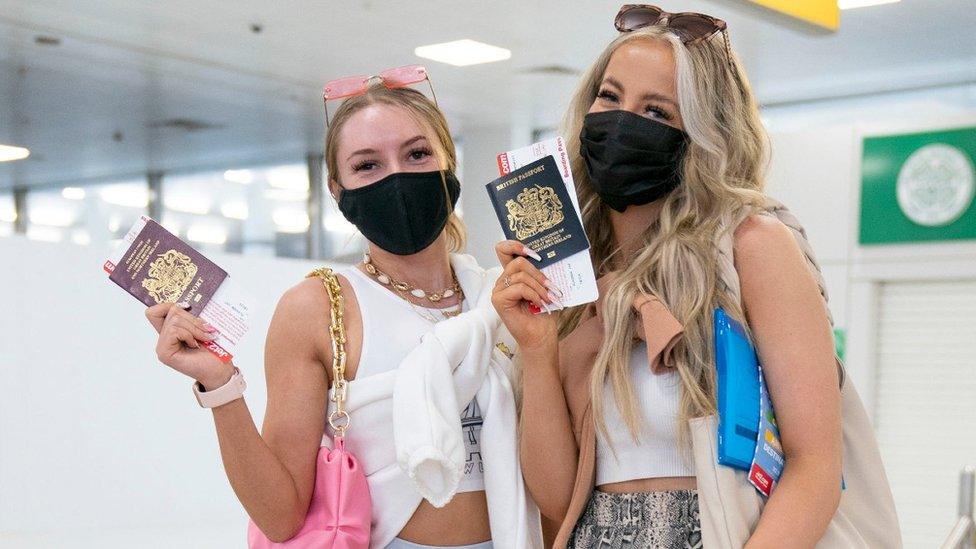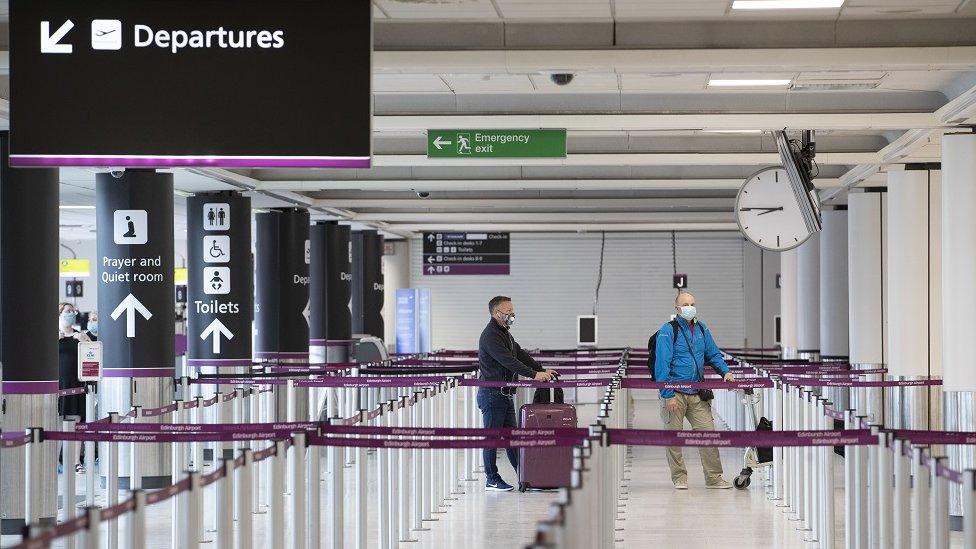Airport chief welcomes travel changes but warns normality 'long way' off
- Published

The Scottish government said easing travel rules had been possible because of the success of the vaccination programme
The chief executive of Edinburgh Airport has welcomed moves to allow vaccinated US and EU visitors to enter the UK without needing to quarantine.
However, Gordon Dewar said aviation travel was a "long way from normal".
He pointed out that Europe was up to 65% of pre-pandemic business while Scotland was less than 20%.
The Scottish government said the announcement on easing travel rules had been possible because of the success of the vaccination programme.
Mr Dewar told BBC Radio's Good Morning Scotland that the move was a "step in the right direction" and he welcomed the four nations approach.
He said: "The really important thing to remember is that international travel is not the sole threat we have here.
"We have pretty high levels of infection still in this country, so when we're having international travel with other countries with similar levels of infection, we are not taking any additional risk there."
Mr Dewar also criticised the Scottish government's advice that people should not travel unless it is necessary, calling it "a disappointing message".
He said that it didn't seem to fit comfortably with the wider policy, which suggests it is safe to travel with precautions like the traffic light system and testing in place.

With Europe having resumed 65% of pre-pandemic air travel, Mr Dewar said there was a "very stark warning" that the UK and Scotland particularly were "falling massively behind."
"We've got to be really careful that the balance is right and that the measures we're taking are actually having a genuinely positive impact in terms of protecting us from the virus", he added.
"We have been very cautious, we're now seeing the cost of that in terms of the economy, there's no national visitors to speak of in Scotland at the moment, where tourism is a large employer.
"Let's not over-do that, let's make sure we're not treating international travel as some sort of pariah."

'Impossible to travel'
Derek Robertson is a Scottish journalist living in Malmo, Sweden.
He says he hasn't been able to visit friends or family in Britain since the pandemic began.
"It's quite challenging, we have two kids so my parents obviously have had very limited time with the grandkids in person.
"They don't understand why we can't just get on a plane and go and visit granny and grandad."
Mr Robertson said it was impractical to travel and quarantine to see his family because there were "so many hoops to jump through".
If his parents had decided to visit Sweden, they would have had to fly to Copenhagen Airport in Denmark and cross the Øresund Bridge, which was closed for several months and at times needed special permission to cross.
He said every time they considered travelling, there was "another hurdle" which made a five or six day visit impossible.

On Wednesday, the Scottish government announced that vaccinated US and EU visitors could enter the UK without needing to quarantine - hours after the UK government confirmed the rule change for England.
Transport Secretary Michael Matheson said it was only possible due to the success of vaccination programmes.
The UK government's Covid Operations committee met earlier and decided to change the rules, effective from 04:00 on Monday.

Fully vaccinated visitors from the US and EU will no longer have to quarantine on arrival in Scotland
Mr Matheson said: "This new arrangement will be carefully monitored by clinicians and kept under close review as we seek to put Scotland firmly on the path to recovery - but people should continue to think very carefully about travelling - especially given the prevalence and unpredictable nature of variants of concern."
The Scottish Chamber of Commerce welcomed the rule change. Chief executive Dr Liz Cameron said it would "provide much needed clarity and certainty", which would allow businesses to "properly prepare and aim to take advantage of increased travel flows".
Dr Cameron added: "We hope that a four nations approach continues to be adopted on future decisions around travel restrictions, as the risk of divergence would pose a great threat to Scotland's aviation, travel and wider tourism industries.
"We must not see these vital parts of our economy put at a competitive disadvantage, as we attempt to open up and show that Scotland is open for business."